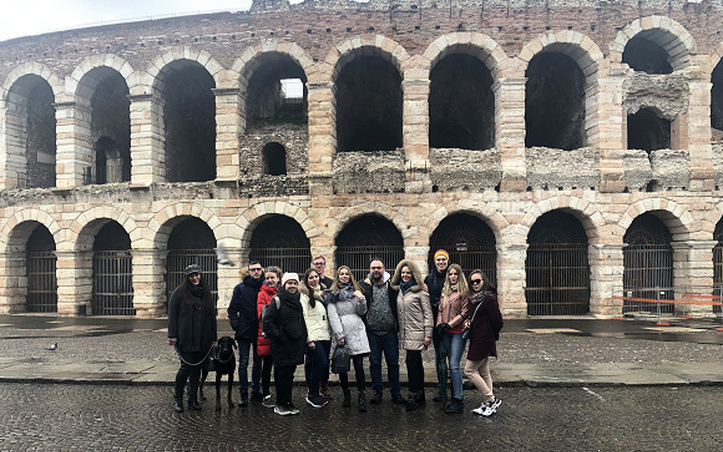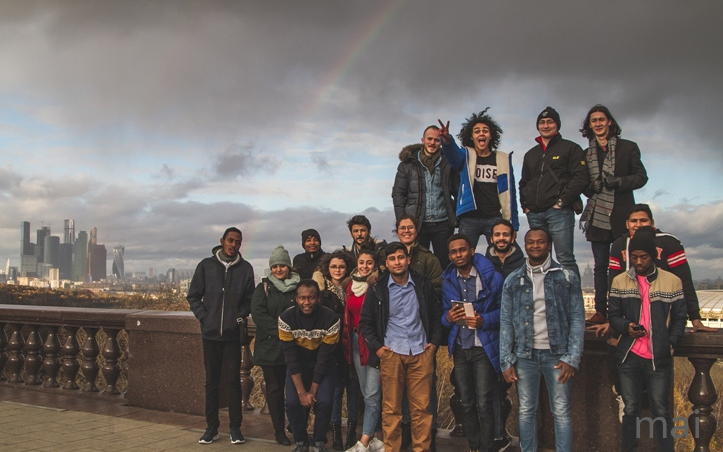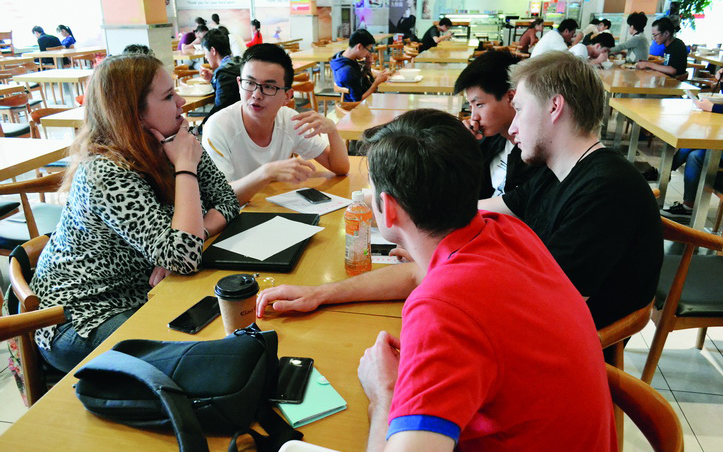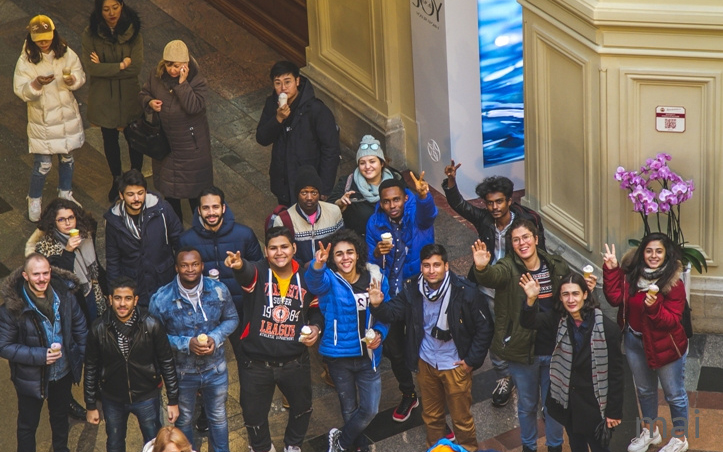How to Become an Exchange Student in Asia or Europe. A Lifehack for MAI Students

Many MAI students do not settle for just the knowledge they got at their alma mater. Thanks to the MAI student exchange program, they broaden their opportinities by going on to study at the leading Asian and European universities. We spoke with the MAI International Department specialist Anastasia Kovaleva and MAI students in order to learn about the program, application requirements, and the opportunities it provides to the students.
So what exact advantages does the exchange program give to the participants?
Firstly, the student will acquire new expertise necessary for future career development, familiarize themselves with the international scientific community, improve their english, develop soft skills, and make many interesting acquaintances. They will also have the useful experience of living in a foreign country, see, feel, and live a different rhytm of life, learn about the culture of various countries. And, lastly, they will have an eye-catching line on their resume.
What foreign universities participate in the program?
In our student exchange program, MAI has partnered with the following higher education institutions:
China
- Shanghai Jiao Tong University,
- Beihang University,
- University of Science and Technology Beijing.
India
- Hindustan University,
- Vel Tech University.
Indonesia
- Bandung Institute of Technology.
Italy
- Polytechnic University of Turin,
- Sapienza University of Rome,
- Polytechnic University of Milan.
France
- ISAE-SUPAERO,
- Polytechnic Institute of Advanced Sciences,
- National School of Civil Aviation.
Germany
- Heilbronn University of Applied Sciences,
- Ingolstadt University of Applied Sciences,
- Technical University of Munich,
- TU Dresden.
Austria
- TU Wien.

What master's degree programs and academic majors are offered as part of the exchange program?
Each university has its own list of specialties. These mostly include aeronautical engineering, materials and modern technologies, mathematics and computer science, space and missile systems, avionics and engineering cybernetics, radioelectronics and communication systems.
Who can participate in the program?
To take part in the academic mobility program, one has to be a bachelor's or specialist's degree program student in their third year and above, regardless of their specialty. The key selection criteria are academic performance (precedence is given to students that have successfully passed four end-of-semester exam periods at MAI at the time of application, or one exam period for master's degree program students), language proficiency, and a clear understanding of one's future aspirations and the necessity of the program. Taking part in various scientific activities might significantly increase your chances of approval. Students that have not previously participated in exchange programs are also prioritized.
What is the duration of the program?
Typically, the above universities have two enrollment periods each year: in spring and in winter. Most programs are one semester long. However, in certain cases, a year-long program is possible.

What is the selection process for the program?
Candidates are selected on a competitive basis, with the admissions being held twice a year: from the beginning of February to the beginning of April (for the autumn semester) and from mid-August to mid-October (for the spring semester). The students must be recommended by the university in order to participate in the program.
Is the content of the education program adapted to the needs of specific students?
The content of the program varies depending on the specified university, as well as the student's preferences and specialty. Most of the universities comply with the European Credit Transfer and Accumulation System (ECTS), where one credit equals 36 workload hours. As a general rule, students personally select the subjects they want to study from a list provided by the university. This indiviual approach allows the students to further devolp their professional competence and acquire additional skills.
How do you support and supervise students abroad?
For the entirety of their stay abroad, the students maintain contact with their supervisors at the International Department. In addition, the student has a supervisor at the receiving university that helps them engage in the education process, solve problems related to their stay and other organizational issues.
As for the living accomodations, a number of universities provide campus housing, others are partnered with hostels.

Are there student payments?
Yes, if the student is state-subsidized and receves student payments at MAI, these payments are maintained. Some programs allow participation in the ERASMUS+ programs that make it possible to win a scholarship, covering some of the expenses.
What student expenses are there?
Attending a program at a partner university is free. However, any other expenses are paid by the students. If a student interns or is employed at MAI, for example at one of the laboratories, and enters the exchange program to receive advanced training, it is possible to arrange financial support by the university.
How can a student earn the academic credits at MAI they will have missed during the program?
Credit transfer is approved by the university examination board after considering the documents that confirm the completion of the necessary courses at the receiving university.

Student testimonials
Egor Areshin, master's degree program student at the MAI School №2 «Propulsion Engineering»:
– The difference in the programs really comes down to the cultural aspect. Some people fall in love with Asia, others - with the Middle East. I like Europe and feel more comfortable there. As for the internship organizing, in my experience, Germany takes the lead due to the numerous opportunities and the level of training they provide. China is trying to keep up with the West, although with a certain Asian flair, which makes them unique. But maybe not for me.
Zoe Mbikai Tshimanga, bachelor's program student at the MAI School No. 1 “Aircraft Engineering”:
- Thanks to the internship I got as part of the academic mobility program, I learned more that I did during my four years as a bachelor's degree student. Having international internship experience also benefited my resume and played a significant role in my getting a job and being eligible for a higher position.